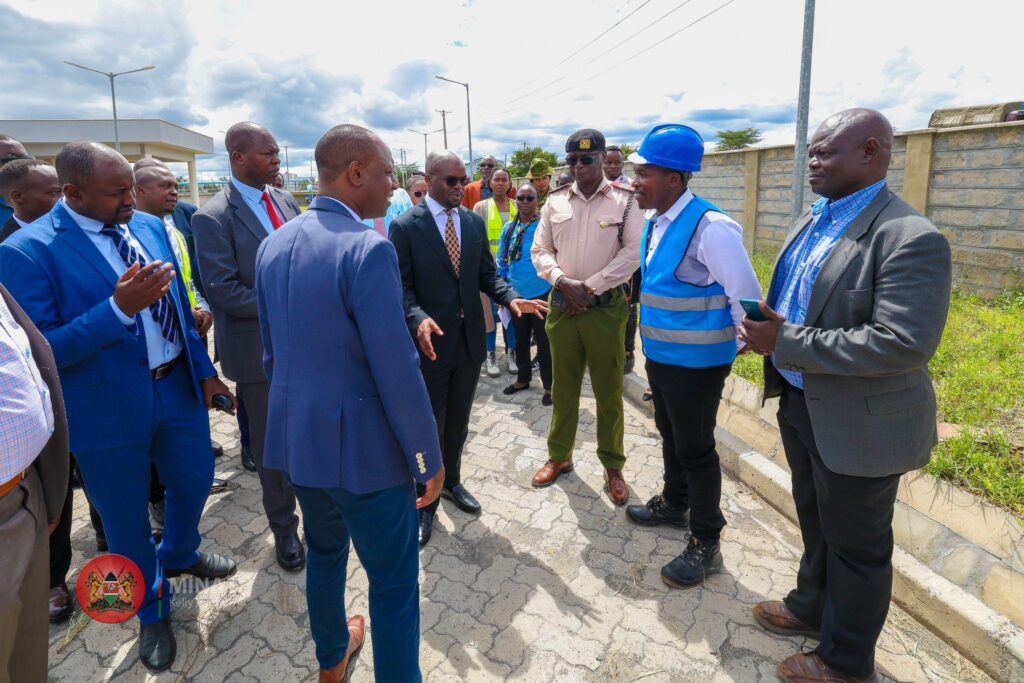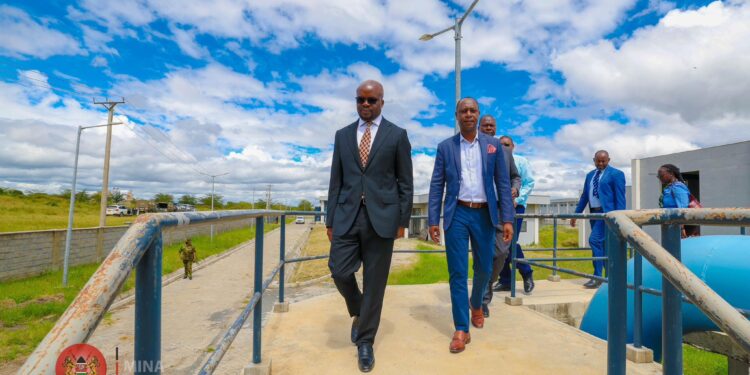Dr. Omollo: Leather Park to Create Over 100,000 Jobs, Cementing Kenya’s Global Industrial Role
The administration of President William Ruto has demonstrated unwavering commitment to delivering transformative development projects across the country through the Bottom-Up Economic Transformation Agenda (BETA). From industrial parks to infrastructure upgrades, the government is rolling out projects aimed at enhancing livelihoods and positioning Kenya as a global economic player.
Interior Principal Secretary Dr. Raymond Omollo has been at the forefront of ensuring that government projects under the BETA framework are implemented efficiently and deliver tangible benefits to Kenyans. His hands-on approach and dedication have seen him collaborate with other ministries to assess, monitor, and support progress in key development sites across the country.
In a recent joint inspection visit to the Kenya Leather Industrial Park in Kenanie, Machakos County, Dr. Omollo, alongside Livestock Development PS Jonathan Mueke and Public Works PS Joel Arumonyang, assessed the progress of one of BETA’s flagship projects. The Leather Park, a collaboration between the Kenya Leather Development Council (KLDC) and the Export Processing Zones Authority (EPZA), is a transformative initiative designed to unlock Kenya’s leather sector and expand the country’s manufacturing base.
The industrial park, once completed, will support 36 tanneries and 18 value-addition factories with the capacity to process up to 3 million hides and 18 million skins annually. This is expected to significantly boost leather sector earnings from the current KSh. 15 billion to KSh. 120 billion. The park’s infrastructure also includes four plug-and-play warehouses that will accelerate investor operations and attract local and international manufacturers.
Key amenities such as internal roads, power substations, water systems, and a modern Common Effluent Treatment Plant are already in place, with ongoing works to improve bulk water supply and enhance access roads. These developments are crucial to ensuring that the park operates efficiently and meets international standards for industrial production and environmental management.
Once fully operational, the Leather Industrial Park is projected to create over 100,000 jobs, a dramatic rise from the current 17,000 jobs in the leather sector. This job creation potential is in line with President Ruto’s broader economic vision of generating inclusive employment and boosting household incomes, especially in rural and semi-urban areas.
Dr. Omollo emphasized that the government remains committed to delivering on its mandate and ensuring that the BETA agenda achieves its transformative goals. “Our mission is to ensure that every project under BETA is implemented to the highest standards and in a way that uplifts the lives of ordinary Kenyans,” he noted. With such dedication and coordinated leadership, the Ruto administration continues to steer the country toward industrial growth and socio-economic transformation.











